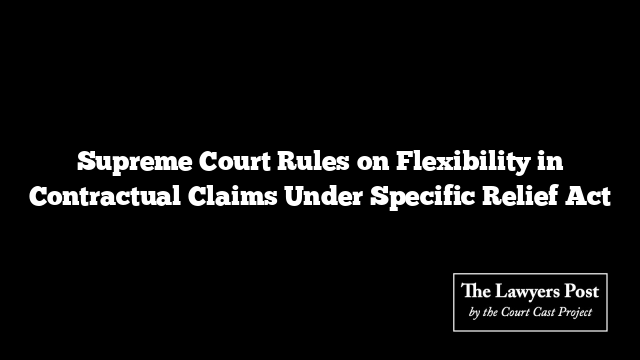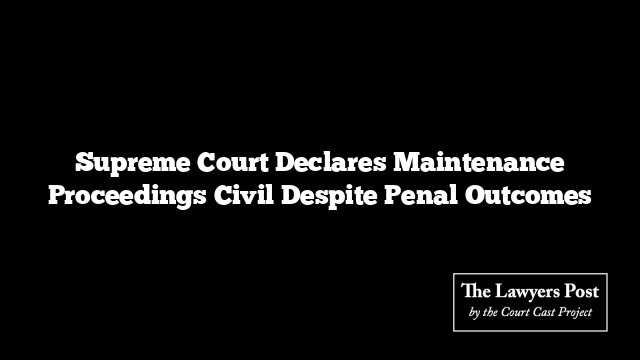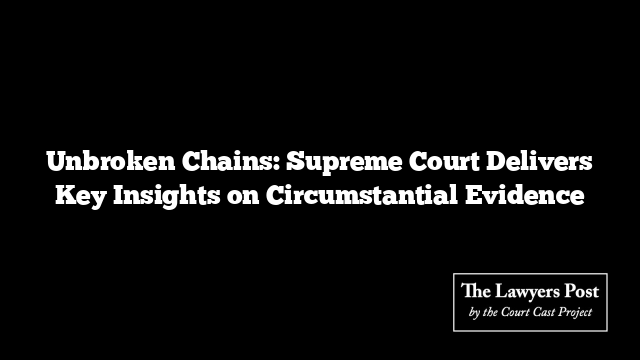The Supreme Court has clarified that relinquishment of claims under Section 12(3) of the Specific Relief Act, 1963, can occur at any point during litigation, including the appellate stage. This pertains to cases where part performance of a contract is sought, allowing plaintiffs to waive claims related to the unperformed portion of the agreement and any associated compensation.
Drawing from precedents, including Kalyanpur Lime Works v. State of Bihar and Waryam Singh v. Gopi Chand, the bench highlighted that this legal principle has long-standing roots. The ruling resolves ambiguities regarding whether such pleas need to be explicitly stated at the trial stage or incorporated into the original plaint.
The decision arose during an appeal involving a challenge to a Madras High Court judgment. In this case, the appellant raised the plea for relinquishment for the first time during the appellate stage. While the High Court entertained the claim, it questioned whether this procedural shift was permissible without prior mention at the trial level. Addressing these doubts, the Supreme Court affirmed that the timing of such a plea does not undermine its validity.
The bench, comprising Justices JB Pardiwala and R Mahadevan, emphasized that plaintiffs are not barred from making this assertion later in the litigation process. They stated, “The claim cannot be rejected solely because it was not raised during the trial or set forth in writing before the trial court.”
This interpretation reinforces the legal framework allowing flexibility for litigants seeking partial enforcement of contracts under the Specific Relief Act. It underscores the judiciary’s recognition of practical considerations in complex contractual disputes, offering litigants greater leeway to address unforeseen circumstances during the course of legal proceedings.





